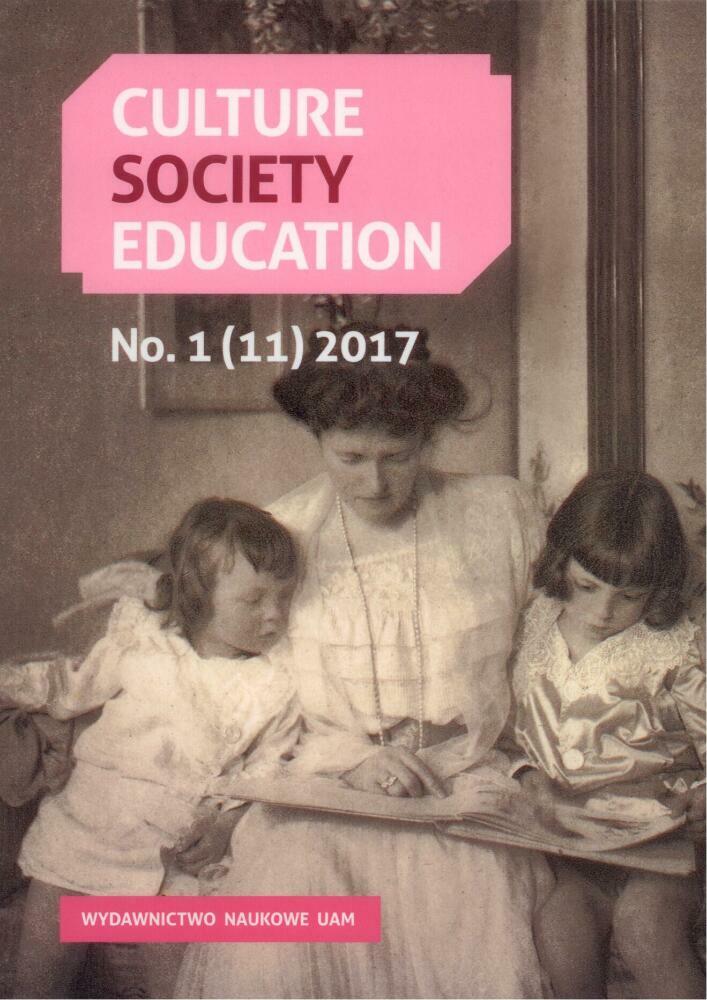Abstract
IIn the paper “Career in the narratives of early adolescents” I set out to describe the selected aspects of constructing an identity during adolescence in the context of prospective professional development among young individuals, who seek to define their future selves. The paper also outlines the social and cultural context of constructing a career, which should potentially be addressed by young individuals long before they enter the labour market. The paper also describes the selected findings of my own concerning career narratives constructed by early adolescents, descriptions of selected career aspects provided by middle school students, and their personal predictions and plans on their prospective life as professionals.
Literaturhinweise
Bańka A. (2011). Pomoc psychologiczna wobec potrzeb rozwojowych jednostek i wyzwań współczesności [in:] M. Piorunek (ed.): Poradnictwo. Kolejne przybliżenia, Wydawnictwo Adam Marszałek, Toruń.
Bańka A. (2016). Proaktywność i decyzyjność. Nowe miary adaptacji twórczej do rozmytej rzeczywistości rynku pracy, [in:] V. Drabik- Podgórna, M. Podgórny (eds.): Zawód czy kompetencje? Wymagania rynku pracy a wspieranie rozwoju kariery, Wydawnictwo Adam Marszałek, Toruń.
Bobryk J. (2004). Świadomość człowieka w epoce mediów elektronicznych, Polskie Towarzystwo Semiotyczne, Warszawa.
Boudon R. (2008). Efekt odwrócenia, Oficyna Naukowa, Warszawa.
Cybal-Michalska A. (2013). Młodzież akademicka a kariera zawodowa, Oficyna Wydawnicza ”Impuls”, Kraków.
Damasio A. R.(2000). Tajemnica świadomości. Jak ciało i emocje współtworzą świadomość, Rebis. Dom Wydawniczy, Poznań.
Długosz P. (2013). Efekt odwrócenia – przypadek polskiego systemu edukacji, „Teraźniejszość – Człowiek – Edukacja”, 3 (63).
Druckner P.F. (2008). The age of discontinuity, Transaction Publisher, New Brunswick.
Dumora, B. (1990). La dynamiqe vocationelle chez l’adolescent de college: continuite etrupture, „L’Orientation scolaire et professionnelle”, nr 19.
Erikson E. H (1968). Identity youth and crisis, W.W.Norton&Company, New York.
Erikson, E.H (1989). Identitaet und Lebenszyklus, Shurkamp Taschenbuch Verlag, Frankfurt am Mein.
Giddens, A. (2007). Nowoczesność i tożsamość. „Ja” i społeczeństwo w epoce późnej nowoczesności, Wydawnictwo Naukowe PWN, Warszawa.
Gottfredson L. (1996). Gottfredson’s Theory of Circumscription and Compromise /w/ Brown D.,Brooks L. (eds.) Carrer Choice and Development, San Francisco.
Guichard J.,Huteau M. (2005). Psychologia orientacji i poradnictwa zawodowego, Impuls, Kraków.
Kubacka-Jasiewicz D., Passowicz P. (2014). Dorastanie we współczesności. Postawy, wartości i doświadczanie czasu a kryzysy rozwoju pokolenia po transformacji, „Czasopismo Psychologiczne”, 20, 2.
Marcia J.E., Waterman A.S., Matteson D. R., Archer S.L., Orlofsky J.L. (1993). Ego Identity. A Handbook for Psychosocial Research, Springer-Verlag, New York.
Modrzewski, J. (2004). Socjalizacja i uczestnictwo społeczne. Studium socjopedagogiczne, Wydawnictwo Naukowe UAM, Poznań.
Osipow, S.H. (1973).Theories of career development, Prentice-Hall, Englewood C., New Jersey.
Piorunek M. (2004), Projektowanie przyszłości edukacyjno-zawodowej w okresie adolescencji, Wydawnictwo Naukowe UAM, Poznań.
Piorunek M. (2006). The Youth as the Clients of Career Guidance: Selected Studies of Polish Adolescents /in/ “The New Educational Review” 2.
Piorunek M. (2007). L’elaboration des projets a l’adolescence: etude empirique aupres d’adolescents polonaise, “L’orientation scolaire et professionnelle” 2.
Piorunek M. (2011). (Bez)sens planowania przyszłości.... Refleksje o adolescencyjnym projektowaniu przyszłości edukacyjno-zawodowej, “Studia Edukacyjne”, 18.
Savickas M. L., (2005 ). Life-Long Self-Construction, “International Journal for Educational and Vocational Guidance”, 5.
Savickas M. L.. (2009) Career studies as self-making and life designing, “Career Research & Development”, 24.
Savickas M. L., (2011). Constructing Careers: Actor, Agent and Author, “Journal of Employment Counselling”, 48.
Savickas M. L., Nota L., Rossier J., Dauwalder J-P., Duarte M. E., Guichard J., Soresi S., Van Esbroeck R., (2009). Life designing: A paradigm for career construction in the 21st century, “Journal of Vocational Behavior”, 75/3.
Smart, R. , Peterson, C. (1997). Super’s career stages and the decision to change careers, “Journal of Vocational Behavior”, 51.
Super D.E., Savickas M.L., Super C.M. (1996). The life-Span, life-Space approach to career (in) D. Brown, L. Brooks e& Associates (eds.), Career Choice and Development, Jossey-Bass, San Francisco.
Super, D.E. (1990). A life- span, life-space approach to career development. [in:] W D. Brown & L.Brooks (eds.), Career choice and development: Applying contemporary theories to practice, CA: Jossey-Bass, San Francisco.
Szafraniec K. (2011), Młodzi 2011, Kancelaria Prezesa Rady Ministrów, Warszawa.
Wrzesień W. (2007). Czy pokoleniowość nam się nie przydarzy? Kilka uwag o współczesnej polskiej młodzieży, “Nauka”, 3.
Zimbardo P. G., Johnson R. L., McCann V. (2010). Psychologia. Kluczowe koncepcje, Vol. 3 Struktura i funkcje świadomości, Wydawnictwo Naukowe PWN, Warszawa.
Żarczyńska-Dobiesz A., Chomątowska B. (2014). Pokolenie “Z” na rynku pracy – wyzwania dla zarządzania zasobami ludzkimi, “Prace Naukowe Uniwersytetu Ekonomicznego we Wrocławiu”, 350.
Lizenz
Copyright (c) 2017 Magdalena Piorunek

Dieses Werk steht unter der Lizenz Creative Commons Namensnennung - Keine Bearbeitungen 4.0 International.

